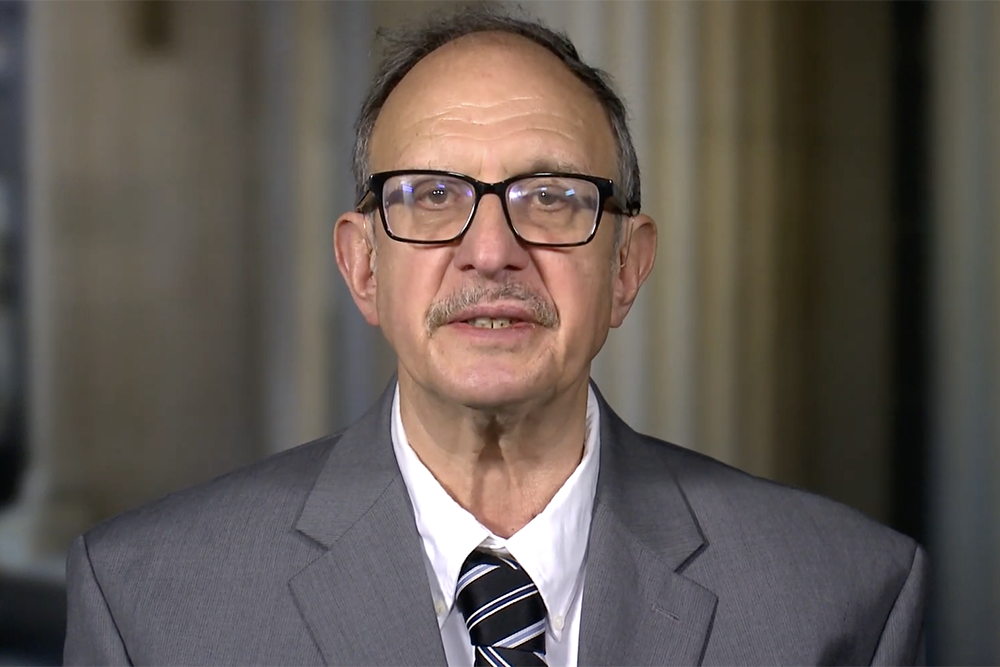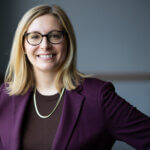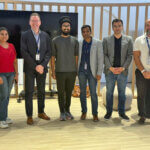Les Perelman, expert in writing assessment and champion of writing education, dies at 77
Leslie “Les” Perelman, an influential figure in college writing assessment; a champion of writing instruction across all subject matters for over three decades at MIT; and a former MIT associate dean for undergraduate education, died on Nov. 12, 2025, at home in Lexington, Massachusetts. He was 77. A Los Angeles native, Perelman attended the University […]

Leslie “Les” Perelman, an influential figure in college writing assessment; a champion of writing instruction across all subject matters for over three decades at MIT; and a former MIT associate dean for undergraduate education, died on Nov. 12, 2025, at home in Lexington, Massachusetts. He was 77.
A Los Angeles native, Perelman attended the University of California at Berkeley, joining in its lively activist years, and in 1980 received his PhD in English from the University of Massachusetts at Amherst. After stints at the University of Southern California and Tulane University, he returned to Massachusetts — to MIT — in 1987, and stayed for the next 35 years.
Perelman became best known for his dogged critique of autograding systems and writing assessments that didn’t assess actual college writing. The Boston Globe dubbed him “The man who killed the SAT essay.” He told NPR that colleges “spend the first year deprogramming [students] from the five-paragraph essay.”
His widow, MIT Professor Emerita Elizabeth Garrels, says that while attending a conference, Perelman — who was practically blind without his glasses — arranged to stand at one end of a room in order to “grade” essays held up for him on the other side. “He would call out the grade that each essay would likely receive on standardized scoring,” Garrels says. “And he was consistently right.” Perelman was doing what automatic scorers were: He was, he said in the NPR interview, “mirroring how automated or formulaic grading systems often reward form over substance.”
Perelman also “ruffled a lot of feathers” in industry, says Garrels, with his 2020 paper documenting his BABEL (“Basic Automatic B.S. Essay Language”) Generator, which output nonsense that commercial autograders nevertheless gave top marks. He saved some of his most systematic criticism for autograders’ defenders in academia, at one point calling out peers at the University of Akron for the methodology in their widely-touted paper claiming autograders performed just as well as human graders.
At least one service, though, E.T.S., partly welcomed Perelman’s critique by making its autograder available to him for testing. (Others, like Pearson and Vantage Learning, declined.) He discovered he could ace the tests, even when his essay included non-factual gibberish and typographical errors:
Teaching assistants are paid an excessive amount of money. The average teaching assistant makes six times as much money as college presidents. In addition, they often receive a plethora of extra benefits such as private jets, vacations in the south seas, a staring roles in motion pictures. Moreover, in the Dickens novel Great Expectation, Pip makes his fortune by being a teaching assistant. It doesn’t matter what the subject is, since there are three parts to everything you can think of.
MIT career
Within MIT, Perelman’s legacy was his push to embed writing instruction into the whole of MIT’s curriculum, not as standalone expository writing subjects, let alone as merely a writing exam that incoming students could use to pass out of writing subjects altogether. Supported by a $325,000 National Science Foundation grant, he convinced MIT to hire writing instructors who were also subject matter experts, often with STEM PhDs. They were tasked with collaborating with departments to plant writing instruction into both existing curricula and new subjects. That effort eventually became the Writing Across the Curriculum program (today named Writing, Rhetoric, and Professional Communication) with a staff of more than 30 instructors.
Building out the infrastructure wasn’t quick, however. Perelman’s successor, Suzanne Lane ’85, says it took him almost 15 years. It started with proving to others just how uneven writing instruction at MIT actually was. “A whole cohort of students who took a lot of writing classes or got communication instruction in various places would make great progress,” Lane says. “But it was definitely possible to get through all of MIT without doing much writing at all.”
To bolster his case, Perelman turned to alumni surveys. “The surveys asked how well MIT prepared you for your career,” says Lane. “The technical skills scored really high, but — what is horribly termed, sometimes, as ‘soft skills’ — communication skills, collaboration, etc., these scored really high on importance to career, but really low on how well MIT had prepared them.”
In other words, MIT alumni knew their stuff but were bad at communicating it, at a cost to their careers.
This led Perelman and others to push for a new undergraduate communication requirement. That NSF grant supported a 1997 pilot, designing experiments for courses that would be communication-intensive. It was a huge success. Every department participated. It involved 24 subjects and roughly 300 students. MIT faculty, following “lively” discussion at an April 1999 faculty meeting, approved the proposal of the creation of a report on the communication requirement’s implementation, followed a year later by its formal passage, effective fall 2001.
From that initial pilot of 24, there are now nearly 300 subjects that count toward the requirement, from class 1.013 (Senior Civil and Environmental Engineering Design) to 24.918 (Workshop in Linguistic Research).
Connections beyond MIT
Early in his career, Perelman worked with Vincent DiMarco, a literature scholar at the University of Massachusetts at Amherst, to publish “The Middle English Letter of Alexander to Aristotle” (Brill, 1978). With Wang Computers as publisher, he was a technical writer and project leader on the “DOS Release 3.30 User’s Reference Guide.” He edited a book and chapter on writing studies and assessment with New Jersey Institute of Technology professor Norbert Elliot. And in a project he was particularly proud of, he worked with the New South Wales Teachers Federation in 2018 to convince Australia to reject the adoption of an automated essay grading regime.
“Les was brilliant, with a Talmudic way of asking questions and entering academic debates,” says Nancy Sommers, whose work on undergraduate writing assessment at Harvard University paralleled Perelman’s. “I loved the way his eyes sparkled when he was ready to rip an adversary or a colleague who wasn’t up to his quick mind and vast, encyclopedic knowledge.”
Openness to rhetorical combat didn’t keep Perelman from being a wonderful friend, Sommers says, saying he once waited for her at the airline gate with a sandwich and a smile after a canceled flight. “That was Les, so gracious, generous, anticipating the needs of friends, always there to offer sustenance and friendship.”
Donations in Perelman’s name can be made to UNICEF’s work supporting children in Ukraine, the Lexington Refugee Assistance Program, Doctors Without Borders, and the Ash Grove Movie Finishing Fund.
https://news.mit.edu/2026/les-perelman-dies-0302
Related
-
 October 28, 2025 | Peter Dizikes | MIT NewsStudying war in the new nuclear age
October 28, 2025 | Peter Dizikes | MIT NewsStudying war in the new nuclear age -
 October 27, 2025 | Danna Lorch | MISTIMIT students thrive in internships in the Arab World
October 27, 2025 | Danna Lorch | MISTIMIT students thrive in internships in the Arab World -
 | Sarah Foote | Division of Student LifeMIT students stretch minds and bodies
| Sarah Foote | Division of Student LifeMIT students stretch minds and bodies
Share a Story
Do you have a story to share about an event, a publication, or someone in the community who deserves a spotlight? Reach out to the SHASS Communications Team with your idea.
Email SHASS Communications